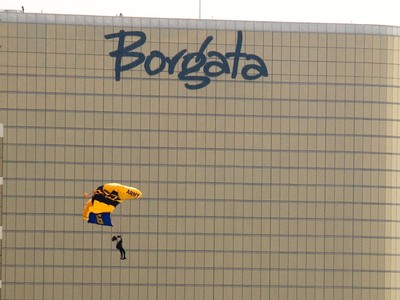Does last week’s Supreme Court of the United States decision to repeal a federal ban on sports gambling mean legal sports betting is coming to Massachusetts?
It does not. Not right away at least.
Massachusetts is not one of a handful of states that passed sports betting legislation pending a change in federal law, anticipating the Supreme Court decision would hand all 50 states the right to legalize sports betting inside their borders.
That means Massachusetts lawmakers are not among those currently hurrying to put together state sports betting regulations. Or be among the first to take legal bets on sports outside of Nevada.
Like it has with almost every other gambling issue, the Massachusetts legislature appears to be taking its time with this one.
Casino gambling in Massachusetts
Most of the rest of the country has experienced a boom in commercial casino construction since the 1990s. Massachusetts has not been involved until recently.
The state’s interest in the commercial casino industry began when it passed the Expanded Gaming Act in 2011. Ultimately, this allowed Penn National Gaming to open up the Plainridge Park Casino slot parlor in June 2015, becoming the state’s first casino.
It also paved the way for construction of Massachusetts’ first two commercial casino resorts to begin. The $950 million MGM Springfield will likely open sometime this year. Plus, the $2.4 billion Encore Boston Harbor (formerly Wynn Boston Harbor) is scheduled to open in 2019.
Several Massachusetts-based Native American tribes have expressed an interest in the local casino market as well. The Mashpee Wampanoag Tribe is now building the $1 billion First Light Resort & Casino in Taunton and expects to open the doors this summer.
Casino gambling is finally on its way to Massachusetts. But with last week’s Supreme Court decision making it possible, will it bring sports betting with it?
Massachusetts sports betting legislation
There is no sports betting bill currently being considered by Massachusetts lawmakers. There is a bill that would set up a special commission to study the issue further. However, it seems unlikely the state will get to the point of approving legal sports betting anytime soon. Certainly not before at least one of the two new commercial casino resorts open up.
However, sports betting remains an issue on legislators’ radar. In fact, Massachusetts gaming regulators issued a white paper examining the prospects for sports betting in the commonwealth on March 1.
The document is essentially a guide for the legislature should it decide to tackle the issue.
The white paper includes the opinion that sports betting will likely not result in any kind of huge windfall for the state. However, regulators seem to believe it will present some interesting opportunities. These include:
- Moving existing sports betting action from the black market to a legal and regulated one
- Capturing some tax revenues from the activity
- Expanding economic opportunities for local sports betting providers and related industries
The document also makes it clear regulators believe any type of legal sports betting in Massachusetts will need to at least match the product currently being offered by illegal and offshore bookmakers.
That means mobile wagering. Plus, the availability of similar bets currently being offered in the black market, including in-game wagering.
The white paper also highlights the fact Plainridge Park, Encore Boston Harbor and MGM Springfield have all said they’d like to to see the state legalize sports betting. Plus, each would consider opening up sportsbooks at the casinos with the right laws in place.
Fantasy sports in Massachusetts
Fantasy sports operators have long claimed it is not gambling. However, it the only thing akin to sports betting that is currently legal in Massachusetts.
Massachusetts lawmakers passed a bill legalizing and regulating paid-entry fantasy sports in 2016. Under the current agreement, fantasy sports operators aren’t paying the state any taxes or fees. However, that could change when the deal expires later this year.
They haven’t had much to say about Massachusetts. However, Boston-based daily fantasy sports market leader DraftKings and CEO Jason Robins said they are eyeing sports betting in other states ready to legalize it now:
“Our mission has always been to bring fans closer to the sports they love and now, thanks to the wisdom of the Supreme Court, DraftKings will be able to harness our proven technology to provide our customers with innovative online sports betting products. This ruling gives us the ability to further diversify our product offerings and build on our unique capacity to drive fan engagement.”
If and when they will be able to offer those same sports betting products in Massachusetts remains a question. One only state lawmakers can answer.
However, the state’s slow build towards increasing gambling options over the past decade does suggest one thing. A regulated and taxed sports betting market in Massachusetts will open up eventually. It’s just a matter of time.
The post Unlike The Neighbors, Massachusetts Is Taking It’s Time With Sports Betting appeared first on Play MA–Legal gambling for Massachusetts.





